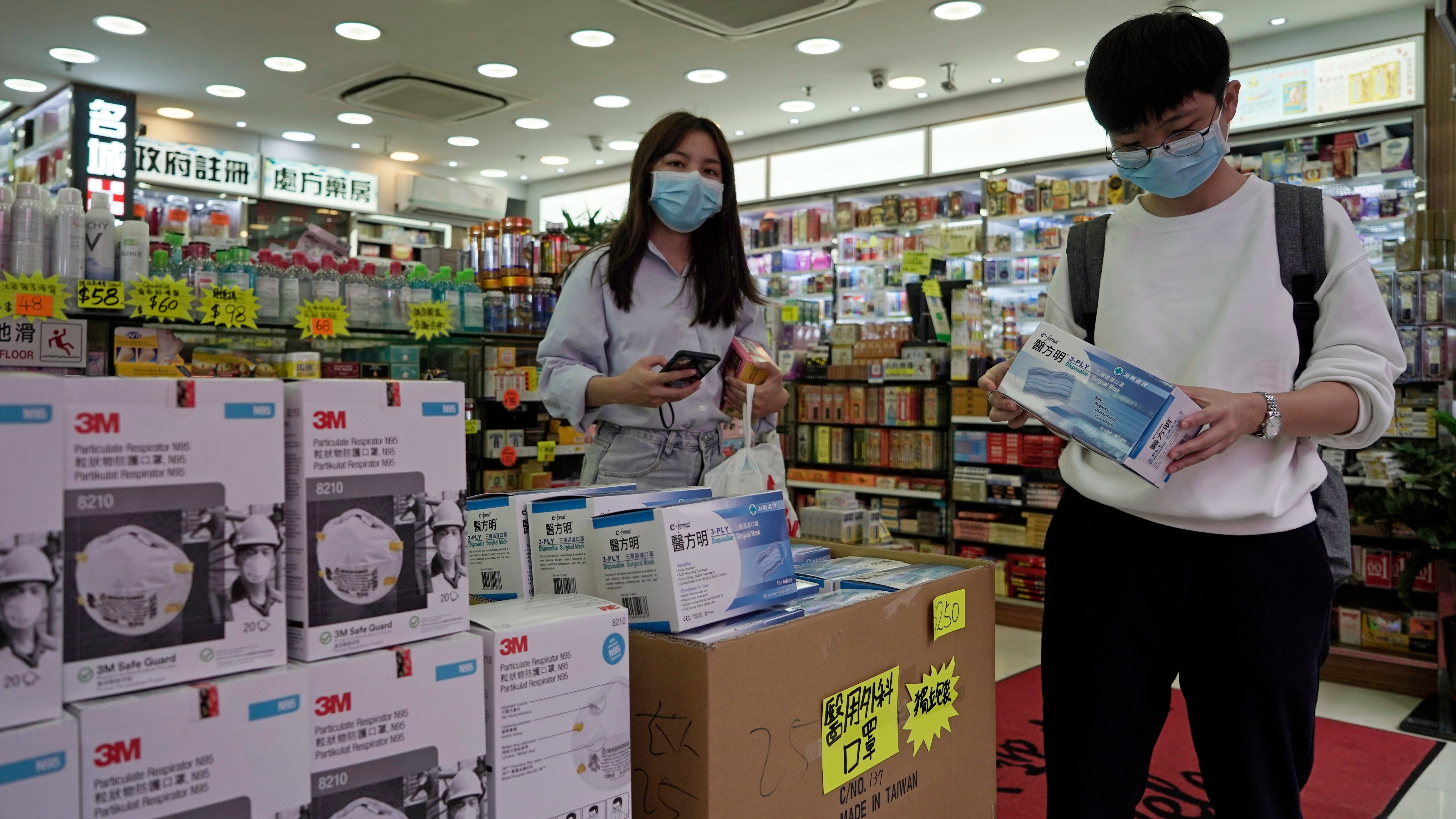Jan 23, 2020
Virus spurs panic buying of face masks in Hong Kong
, Bloomberg News
WHO deciding whether or not coronavirus is a global health emergency
Hong Kong residents can’t seem to find enough face masks.
More than a decade after the SARS epidemic swept across Asia, residents in the region’s biggest financial centre are again confronted with the prospect of a viral outbreak.
The emergence of the first two cases of novel coronavirus in the special administrative region sparked scenes not seen in the city since 2003, when fears over the deadly severe acute respiratory syndrome, or SARS, sent residents scrambling for medical supplies and brought the city to a standstill.
With the outbreak across the border in mainland China of a new virus that has so far claimed 17 lives, pharmacies across Hong Kong were by Thursday evening sold out of masks aimed at preventing viral infection. That prompted calls from authorities for calm and consumer watchdog warnings against price gouging.
“We are aware there is panic buying in the market,” Matthew Cheung, Hong Kong’s second-highest official, said at a press conference on Thursday, seeking to reassure people that health authorities have enough masks to last the next three months, and that more would be available in the retail market. “A few batches of new face masks will arrive next week.”
On the streets of Central, where some of the biggest banks and financial institutions in the city are based, many office workers wore masks — an ironic turn of events given the Hong Kong government’s attempts to ban them during the protests which swept the city in 2019.

Cheung asked Hong Kong residents to avoid unnecessary travel to Wuhan, China, the epicenter of the virus outbreak. Officials in Wuhan have suspended outbound travel from the city and Chinese authorities have expanded travel restrictions to two more cities to prevent the spread of the virus.
Many of Hong Kong’s residents have vivid recollections of the SARS epidemic that spread from Guangdong province in southern China in 2003, and which by the summer had infected 8,098 people and killed 774 worldwide, including 299 in Hong Kong.
Public health awareness programs proliferated after that, with reminders that still dot the densely populated city — like buttons in elevators with signs stating they’re sanitized twice daily.
As Hong Kongers brace for this new outbreak, face masks were nowhere to be found, or were being sold with steep markups. At Fanda Pharmacy in Central, the only single packages of masks that remained were for children — brightly colored in neon or with pink cartoon characters emblazoned on the front.
For adults, the only remaining options were boxes of 20 particulate respirators for HK$850 (US$109). That’s almost three times its online price of HK$300 on e-commerce website HKTVMall, where it’s currently out of stock. The same box was selling for HK$2,000 in nearby Lan Kwai Fong on Thursday.
Hong Kong’s Consumer Council, the city’s independent statutory consumer welfare authority, urged traders not to raise prices to “outrageous levels” as demand for face masks increases, Radio Television Hong Kong reported.
In Macau, which has also confirmed two cases of novel coronavirus and cancelled festivities for the Lunar New Year, authorities said sales would be restricted to a maximum of 10 face masks to residents or authorized guest workers who can present a valid ID card. The government also urged the public not to panic-buy facial coverings.
On the mainland, e-commerce giant Alibaba Group Holding sold 80 million face masks through its Taobao website on Monday and Tuesday alone, the company said on its official Weibo account.
Hong Kong has turned into a sea of masks just months after the city’s government tried to ban face coverings in a controversial effort to unmask people taking part in pro-democracy protests. The measure, which used a colonial-era emergency regulations ordinance, was challenged in the city’s court and is not in effect while a judgment is pending.
--With assistance from Aaron Mc Nicholas and Kismet Singh.


